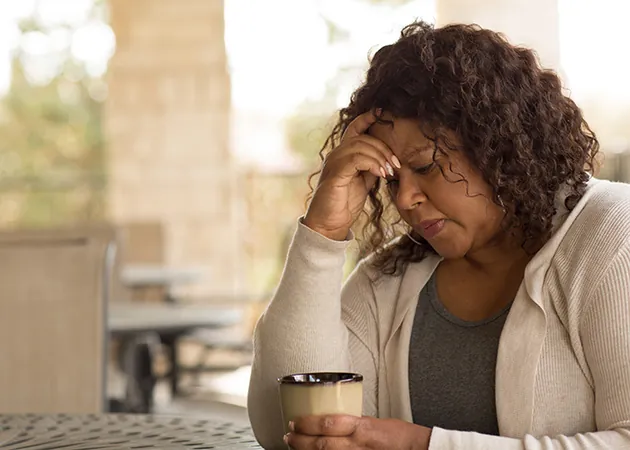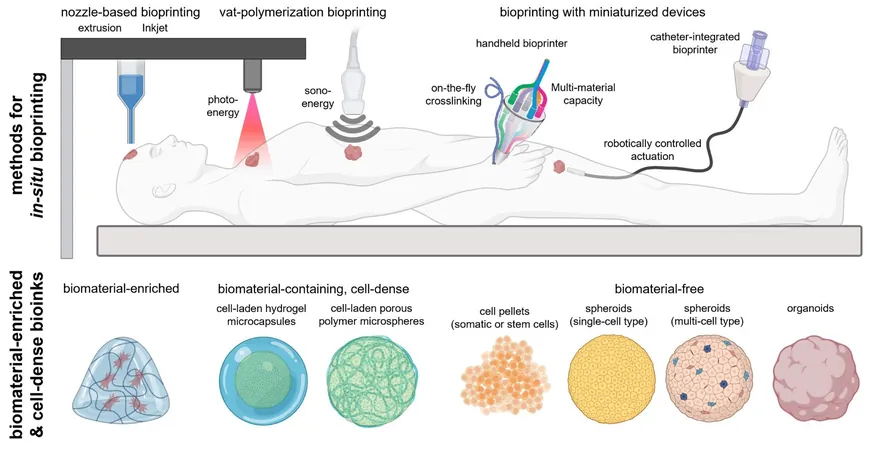
Unveiling a Hidden Link: How Childhood Trauma Heightens Health Risks for Breast Cancer Survivors
2024-11-01
Author: Sarah
A groundbreaking new study reveals that traumatic events experienced during childhood can significantly affect the long-term health of breast cancer survivors, leading to a higher likelihood of enduring severe anxiety, depression, fatigue, and cognitive decline long after treatment has concluded. The research, spearheaded by Dr. Jamie Myers from the University of Kansas School of Nursing, shines a light on the often-overlooked impact of adverse childhood experiences (ACEs) on survivors navigating their post-cancer lives.
Understanding Adverse Childhood Experiences (ACEs)
ACEs encompass a wide range of distressing situations, including physical or emotional abuse, neglect, parental divorce, and exposure to household substance abuse or incarceration. While previous studies have correlated these traumatic experiences with the onset of various diseases, including heart disease and cancer, limited research has focused on their long-term consequences in cancer survivors.
Research Objectives and Methodology
The research team sought to bridge this gap by collaborating with Lori Ranallo, a nurse practitioner from The University of Kansas Cancer Center, to explore the relationship between ACEs and enduring health complications in breast cancer survivors. "Our goal was to determine if we could feasibly assess ACEs in this population and investigate any connections to increased anxiety, depression, fatigue, cognitive impairments, and sleep disturbances," Myers explained.
In this study, 120 women participated, all of whom had completed breast cancer treatment and were receiving follow-up care at a survivorship clinic. The participants completed a questionnaire designed to evaluate their experiences before the age of 18, detailing exposure to ACEs. Their responses were further assessed against established scales for measuring anxiety, depression, fatigue, cognition, and resilience.
Findings of the Study
To add a deeper layer of understanding, blood samples were collected to identify biomarkers linked to chronic stress responses, a condition known to contribute to chronic inflammation. This inflammation, in turn, has been associated with a host of psychological and cognitive issues.
At the average age of 63, the participants had been diagnosed nearly 15 years earlier. The findings were telling: women with higher ACE scores reported significantly greater levels of fatigue, anxiety, depression, and reduced cognitive function. Conversely, those who exhibited higher resilience reported better cognitive function and lower levels of anxiety and depression, suggesting a possible protective effect.
Limitations and Future Research
However, the study did not confirm that resilience could alleviate the severity of these issues in those with higher ACEs, potentially due to the absence of participants with late-stage breast cancer, who may have faced more significant challenges. “We may have missed critical insights from those who encountered the most severe adversities,” Myers commented, emphasizing the need for more diverse participant demographics in future research.
Implications for Patient Care
With this study establishing the initial feasibility, researchers are eager to expand their investigation, aiming for larger cohorts and a wider representation of disease stages and socioeconomic backgrounds. The ramifications of this research extend far beyond the academic realm, potentially shaping patient care practices. Healthcare providers are encouraged to consider routine ACE assessments for breast cancer survivors, paving the way for targeted interventions that enhance resilience and improve overall quality of life.
As the journey for better survivorship care continues, this study serves as a clarion call for the medical community to acknowledge and address the often-hidden scars of childhood trauma and their pervasive effects, ultimately striving for more supportive, holistic approaches to patient wellness in the aftermath of cancer.
Stay tuned for upcoming findings as researchers dive deeper into this critical aspect of survivor health!





 Brasil (PT)
Brasil (PT)
 Canada (EN)
Canada (EN)
 Chile (ES)
Chile (ES)
 España (ES)
España (ES)
 France (FR)
France (FR)
 Hong Kong (EN)
Hong Kong (EN)
 Italia (IT)
Italia (IT)
 日本 (JA)
日本 (JA)
 Magyarország (HU)
Magyarország (HU)
 Norge (NO)
Norge (NO)
 Polska (PL)
Polska (PL)
 Schweiz (DE)
Schweiz (DE)
 Singapore (EN)
Singapore (EN)
 Sverige (SV)
Sverige (SV)
 Suomi (FI)
Suomi (FI)
 Türkiye (TR)
Türkiye (TR)